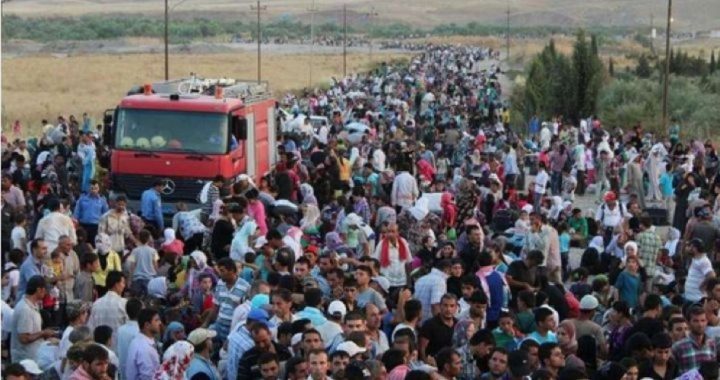
The United States admitted 23,428 aliens as “refugees” during the first 11 weeks of fiscal year 2017 (October 1 through December 17), according to the Refugee Processing Center (RPC), which is operated by the State Department’s Bureau of Population, Refugees, and Migration (PRM).
The RPC’s computers track the movement of refugees from various countries around the world to the United States for resettlement under the U.S. Refugee Admissions Program (USRAP).
If the rate of refugee settlements thus far in FY 2017 holds, the United States will resettle approximately 110,580 for the fiscal year. This number would exceed President Obama’s goal of admitting 110,000.
In an 82-page report to Congress obtained by Politico in September, the Obama administration said it will try to admit a “significantly higher” number of refugees from Syria during the next fiscal year than the 10,000 goal it set for the fiscal year that ended on September 30. The administration exceeded the 10,000 figure a month ahead of schedule.
WorldNetDaily reported on December 20 that its news editor, Leo Hohmann, sees the ramped-up numbers as part of a “concerted effort” by the Obama administration to admit as many refugees as possible before Donald Trump becomes president. “Get them here before Trump takes office on January 20, because you don’t know exactly what Trump will do with regard to this controversial program,” Hohmann said, summarizing the Obama administration’s attitude.
“The left is in panic mode because this program has run on autopilot for 35 years, and now for the first time we have a president who has expressed an interest in taking a hard, critical look at how it is run and the effects it’s had on our cities, states and country.”
Hohmann pointed to a recent column by Daniel Horowitz, senior editor at Conservative Review, noting that Trump can block roughly 80,000 of the refugees who are scheduled to be admitted after he takes office. Horowitz wrote:
To begin with, §212(f) of [the] Immigration and Nationality Act gives the president unilateral authority at will to shut down any form of immigration under any circumstance. In particular, §207 delegated to the president full authority to set the number of refugees to be admitted in a given year. Thus, Trump can easily shut down refugee resettlement through executive action on day one of his administration.
In our article posted on September 29, one day before FY 2016 ended, we cited a statement made the previous day by Simon Henshaw, principal deputy assistant secretary of the Bureau of Population, Refugees, and Migration, during a hearing of the Senate Subcommittee on Immigration and the National Interest convened by committee chairman Jeff Sessions (R-Ala.) — President-elect Trump’s pick to be our next attorney general.
During his testimony, Henshaw admitted that during the vetting process for refugees, U.S. immigration officials make no effort to learn if they harbor extremist views.
During the hearing, Sessions questioned Henshaw about the procedures for screening refugee applicants, asking: “Do you make any inquiry about practices that we reject in the United States, like female genital mutilation? Do you say, ‘Do you believe in that and when you come to the United States will you comply with the laws of the United States on that kind of question?’”
Sessions then pursued his line of questioning by citing a Justice Department report indicating that the United States last year experienced 27 “honor killings,” a practice that is widely accepted in some Muslim-dominated countries that practice Sharia law.
Henshaw told Sessions, “Senator, I see no evidence to show that refugee communities are bringing these values into the United States. I see that they’re becoming good American citizens, members of the military, members of our police … people that have U.S.-American values.”
Sessions then noted that the perpetrators of Muslim honor killings come from the same cultural backgrounds as refugees and also observed that 40 refugees have been charged with terrorism-related crimes in the United States. “So you’re not perfect in your admission, I have to admit,” Sessions said.
Considering that Trump relied on Sessions as one of his key advisors during the presidential campaign and that the Alabama senator is set to become our next attorney general, it is safe to assume that the incoming president will share Sessions’ concerns that the Obama administration — in its rush to admit as many Syrian and other Middle Eastern refugees as possible — was extremely lax in its vetting process.
Therefore, it should come as no surprise if Trump uses his authority, as Daniel Horowitz suggested, to block many of the 80,000 refugees that Obama has scheduled to be fast-tracked through the admissions process.
Related articles:
Obama Administration’s Syrian Refugee Processing Numbers Accelerate
Muslim Syrian Refugees Vastly Outnumber Christians — 12,587 to 68
U.S. Not Screening Refugees for Extremist Views
House Leaders Inform DHS Secretary That Obama Refugee Program Threatens National Security



